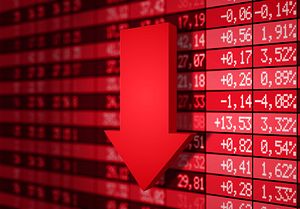Emerging market stocks have slumped to five-month lows, their currencies are plunging and investors are rattled. But for Nouriel Roubini, also known as “Dr Doom,” Asian investors should not start heading for the exits just yet.
On Tuesday, the MSCI Emerging Markets Index dropped 1.1 percent to 916, the lowest level since August 2013 and its worst start to a year on record. Global stocks have seen $2.9 trillion erased from values amid worries over China and the U.S. Federal Reserve’s renewed tapering. Even the once mighty Japanese stockmarket has entered “correction” territory with a 14 percent drop from its December 30 peak.
In a new article, the American economist credited with predicting the global financial crisis blamed the recent volatility on a “mini perfect storm” caused by the Fed, weaker economic data from China, and political uncertainty and unrest in Turkey, Ukraine and Thailand.
Worryingly for the Asia-Pacific region, Roubini lumped India and Indonesia into a group with Brazil, South Africa and Turkey that he described as the “Fragile Five” due to their twin fiscal and current account deficits, faltering growth, high inflation and political instability. Thailand, which has been rocked by a political crisis, was also described as vulnerable.
Roubini also lambasted the “over-hyped BRICS countries, now falling back to reality.” He said Brazil, South Africa and Russia would lag U.S. growth this year, while China and India faced economic slowdowns worsened by demographic decline.
“The largest of the BRICS, China, faces additional risk stemming from a credit-fueled investment boom, with excessive borrowing by local governments, state-owned enterprises, and real-estate firms severely weakening the asset portfolios of banks and shadow banks,” he warned.
“Most credit bubbles this large have ended up causing a hard economic landing, and China’s economy is unlikely to escape unscathed, particularly as reforms to rebalance growth from high savings and fixed investment to private consumption are likely to be implemented too slowly, given the powerful interests aligned against them.”
While analysts expect China to slow slightly from 7.7 percent GDP growth in 2013 to around 7.5 percent this year, Roubini said a hard landing posed a “serious threat to emerging Asia, commodity exporters around the world, and even advanced economies.”
Roubini said the slide in emerging markets would be worsened by further Fed tapering and lower commodity prices, with further currency depreciation feeding into higher inflation and worsening the fiscal crisis.
‘Crisis Threat Low’
Yet amid the gloomy prognosis, Roubini said the threat of a full blown currency or debt crisis remained low, even among the Fragile Five, due to their flexible exchange rates, foreign currency reserves and relatively solid banking systems.
“Over time, optimism about emerging markets is probably correct. Many have sound macroeconomic, financial, and policy fundamentals. Moreover, some of the medium-term fundamentals for most emerging markets, including the fragile ones, remain strong: urbanization, industrialization, catch-up growth from low per capita income, a demographic dividend, the emergence of a more stable middle class, the rise of a consumer society, and the opportunities for faster output gains once structural reforms are implemented,” he noted.
“But the short-run policy tradeoffs that many of these countries face – damned if they tighten monetary and fiscal policy fast enough, and damned if they do not – remain ugly. The external risks and internal macroeconomic and structural vulnerabilities that they face will continue to cloud their immediate outlook. The next year or two will be a bumpy ride for many emerging markets, before more stable and market-oriented governments implement sounder policies.”
Penny Drops For Developed Markets
On Tuesday, the Reserve Bank of Australia noted “considerably more challenging” conditions in some emerging market countries compared to a year ago, despite “reasonable prospects of a [global] pick-up this year.” Australia’s central bank left official interest rates steady at 2.5 percent, signaling an end to further rate cuts and helping the local currency strengthen after more than A$25 billion was wiped off the value of Australian stocks.
“The concern now is that China is more likely to grow at say 5 percent, and hence these [emerging markets] are now facing the twin conflicts of wasted opportunity and dull growth from their principal trading partners. With developing markets, the penny is dropping about Chinese growth,” Australian fund manager Kerr Neilson told the Australian Financial Review.
The effects may be particularly damaging for Japan, with the yen having gained 3.2 percent in January, in part due to its perceived “safe haven” status. For Abenomics, a stronger yen and weaker stocks is the worst possible scenario ahead of a consumption tax hike in April that threatens to crimp spending.
“Don’t panic” may be the message from Roubini, but the region has good cause to start worrying should the sell-off continue.

































